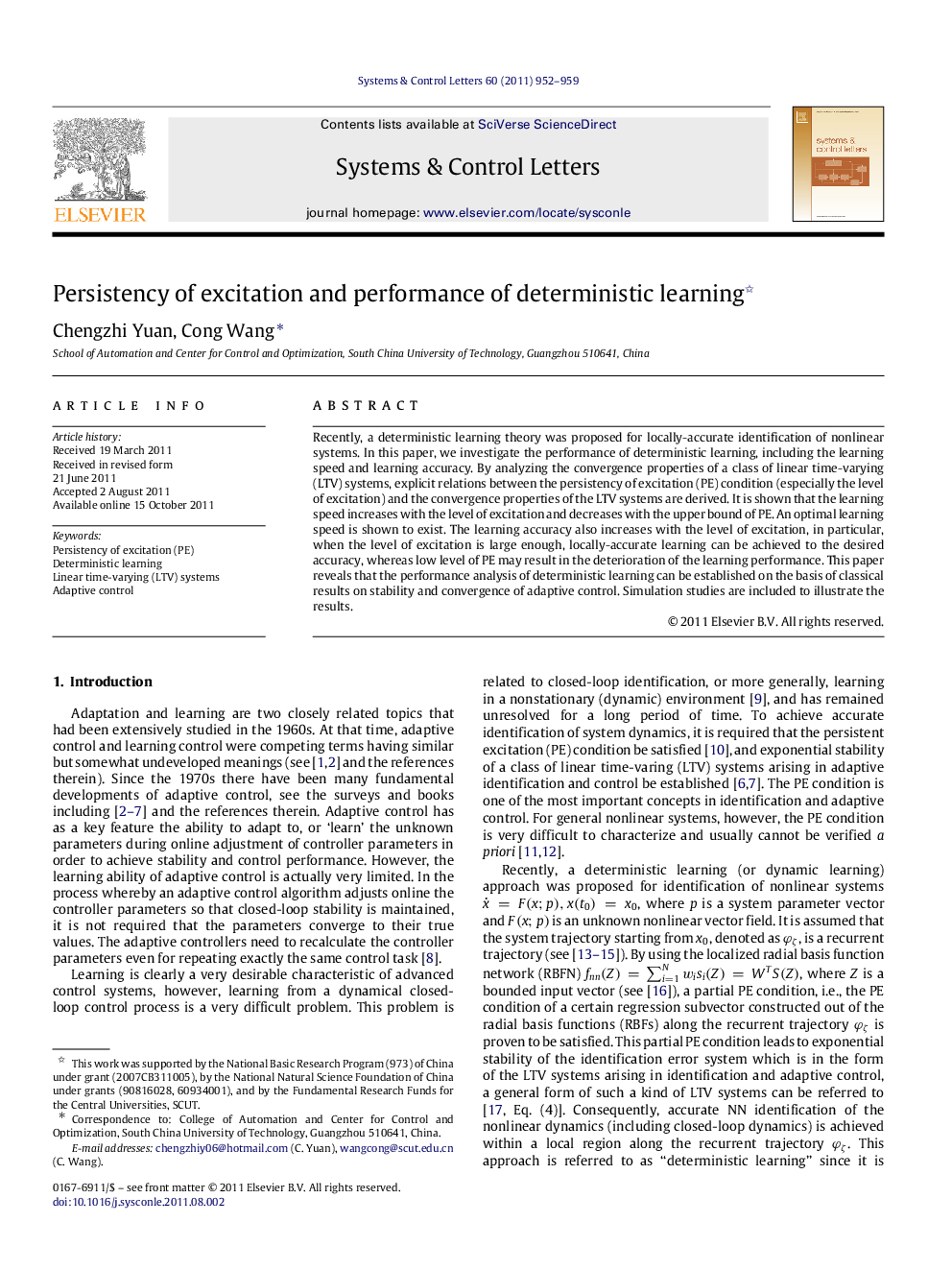| کد مقاله | کد نشریه | سال انتشار | مقاله انگلیسی | نسخه تمام متن |
|---|---|---|---|---|
| 752307 | 1462334 | 2011 | 8 صفحه PDF | دانلود رایگان |

Recently, a deterministic learning theory was proposed for locally-accurate identification of nonlinear systems. In this paper, we investigate the performance of deterministic learning, including the learning speed and learning accuracy. By analyzing the convergence properties of a class of linear time-varying (LTV) systems, explicit relations between the persistency of excitation (PE) condition (especially the level of excitation) and the convergence properties of the LTV systems are derived. It is shown that the learning speed increases with the level of excitation and decreases with the upper bound of PE. An optimal learning speed is shown to exist. The learning accuracy also increases with the level of excitation, in particular, when the level of excitation is large enough, locally-accurate learning can be achieved to the desired accuracy, whereas low level of PE may result in the deterioration of the learning performance. This paper reveals that the performance analysis of deterministic learning can be established on the basis of classical results on stability and convergence of adaptive control. Simulation studies are included to illustrate the results.
Journal: Systems & Control Letters - Volume 60, Issue 12, December 2011, Pages 952–959